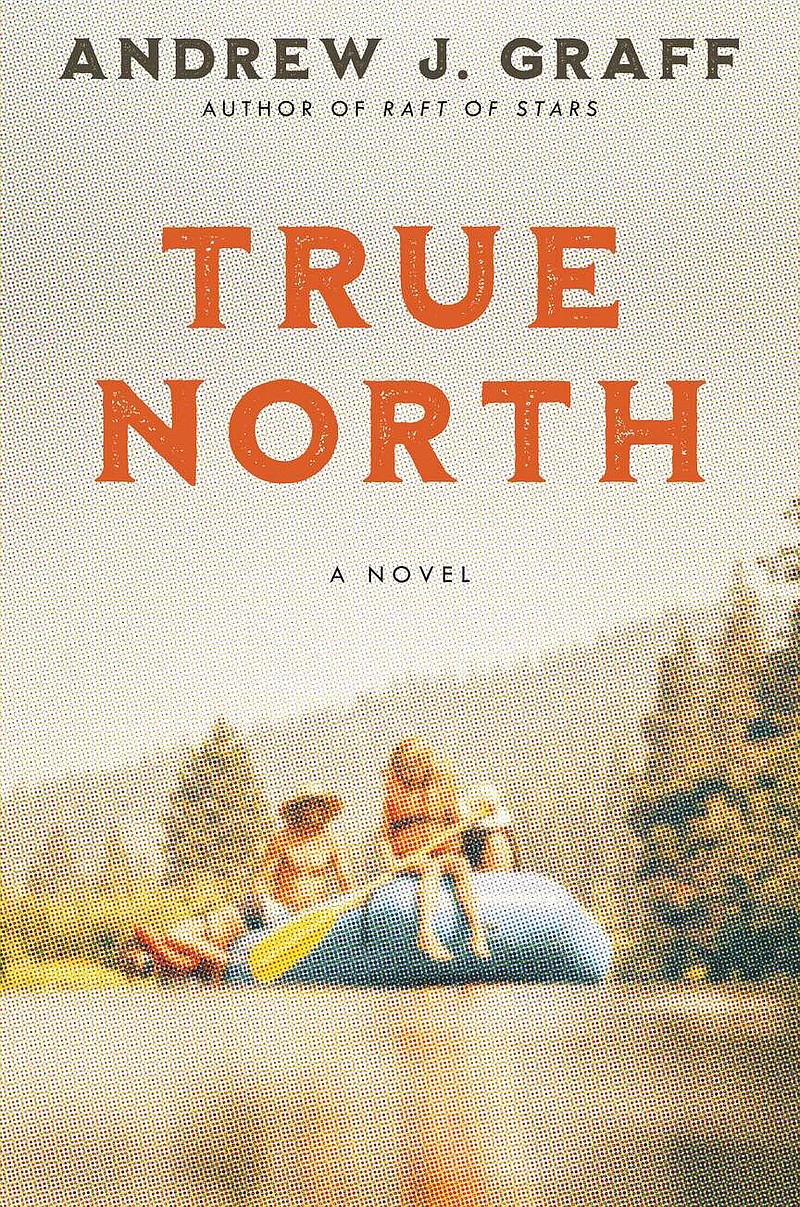With the country locked in ice, "True North," Andrew J. Graff's warmhearted story about a summer of white-water rafting, sounds like the vacation we all need. Graff's second novel offers just enough drama to be exciting and just enough reassurance that everybody will get home safe.
But the stakes couldn't be higher for Sam Brecht, the optimistic young man who puts this adventure in motion. Desperate to save his failing marriage, he's already run through a series of bold visions, including a pick-your-own blueberry farm that, somehow, never got off the ground. Now, with two kids and a new baby, Sam suspects he's about to lose his job as a high school art teacher, so he needs a sure thing.
I'm no financial adviser, but when your best side hustle starts with buying a brand-new 23-foot-long Winnebago, you're on the scenic route to bankruptcy. And yet that monster vehicle is only the smallest part of Sam's last-ditch scheme. With money from his retirement savings - surely vast, given his degree in ceramics - he's also bought a run-down rafting company in Wisconsin. Back in the day, he and his wife, Swami, had fallen in love near a river. "Maybe," he thinks, "another river could make everything right again."
This would be a brilliant plan if the fundamental problem with Sam's marriage was dehydration. But what really alarms Swami is her husband's impracticality and self-delusion, chronic conditions that have started to present as incompetence and deceit. "Swami's annoyance with Sam's dreaming had grown exponentially," Graff writes. "When they first met, Swami liked to play along. She never thought he was serious, but she'd humor him. The summer after his first year of student teaching in college, Sam mused over a bottle of beer that he wanted to move to West Virginia near the New River and sell pottery from a van."
College students: If you find yourself dating this man, take his best pot as a memento and run.
By the time "True North" begins, Swami's sexy smile has sagged into an exasperated frown. And that's before she finds out Sam plans to extend their summer adventure through October.
Even before this conflicted family reaches the Woodchuck Rafting Co., Sam hits a deer that puts their Winnebago out of service. When strangers finally tow them to the site of their new life, they discover a dilapidated barn, some old rafts and a collection of moldy life jackets. Sam surveys his wasted empire and thinks: "He and Swami would make this place thrive again. ... They'd be rolling in river cash."
Well, they'll be rolling in something.
Graff keeps piling on the troubles. Sam's Uncle Chip, who sold him the business, is a Falstaff-like character with a ready spliff and a creative understanding of business. The Woodchuck staff are good-hearted but undisciplined folks who include a crystal healer named Moon. A multibillion-dollar mining corporation is sniffing around the property despite the discovery of Indian burial mounds. And a slick, well-financed rafting company has just opened up nearby with plans to siphon off all of Woodchuck's customers. Sam's dream looks sunk before it even launches onto the water.
Graff, who served in Afghanistan after 9/11, has developed a kind of cuddly machismo. His first novel, "Raft of Stars," is about a pair of 10-year-old boys who strike out on their own in northern Wisconsin. With "True North," he's shifted to a hero who sometimes feels only slightly older.
I'd like to read this novel in a couples book club. I suspect Sam will remind every woman of her first husband. But leaving the 9-to-5 grind, heading into the woods and saving the Woodchuck Rafting Co. is a fantasy lots of men will respond to. That's no accident. "True North" is structured as a masculine romance: Sam gets to be the well-meaning, adorable dad who keeps screwing up, gosh darn it, while Swami is cast as the irritable shrew who needs to realize the error of her ways.
"Sam had let her down more than she'd ever imagined possible," Graff concedes. "But she had let him fall."
Oh, dear. You two should sell that Winnebago and buy a decade's worth of couples therapy.
Instead, Sam turns for advice to Uncle Chip, who drove off his own wife years ago. "You need a grand gesture," Chip advises. "That's what they do in all those Hallmark movies." Sam scoffs, but his uncle seems to have a preternatural grasp of the feel-good plot they're all moving through. By the end, even the Native Americans who haunt the edges of this story are happy.
In these bleak times, who can argue with that? Still shaken by Paul Lynch's Booker-winning "Prophet Song," about a nation slipping into fascism, I was happy to run off for a spell in the Northwoods with Sam and his family. Given the paucity of hope and happiness in contemporary literary fiction, those feelings must be a lot harder to produce than irony and despair. If you're looking for a story that lets grace finally wash over its characters, come on down. The water's great.
Which is where "True North" really sparkles. Having grown up in Wisconsin's Northwoods, Graff has a visceral feel for the flow of the river. This is a story muscled with rushing water. "As Sam's life savings and marriage were dwindling away, the river rose," Graff writes. "It was getting harder and harder to guide boatloads of inexperienced paddlers." But Sam loves it too much to give up. "In the middle of a wave or a drop, in all that swoop and boom and spray, it was impossible to think about anything else." Indeed, the most terrific passages of "True North" send us shooting through rapids in prose that feels both precise and chaotic. Don't be surprised if waves crash over the margins of these pages. But you're safe. Very safe.
True North
By Andrew J. Graff
Ecco. 294 pp. $30

